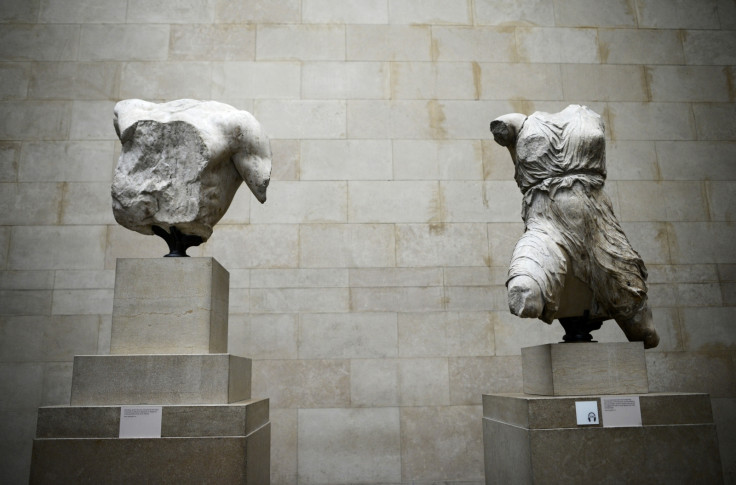Elgin Marbles: What they are, why the British Museum has them and why they've annoyed Greece

In the British Museum sit the "Elgin Marbles", a stunning and important collection of sculptures and architectural features from the Parthenon, the ancient Greek temple which still stands in Athens today.
The 2,500 year old marbles were "acquired", as the British Museum euphemistically puts it, by Lord Elgin between 1801 and 1805. Elgin was a diplomat for the British Empire in Ottoman Istanbul when he started pilfering from the Parthenon and other smaller structures on the Acropolis.
Greece was under the control of the Ottoman Empire at the time. Elgin had gotten permission from a senior Ottoman sultan to make plaster moulds of parts of the Parthenon and even take decorative bits of the building away, as long as he didn't interfere with its structural integrity.
In other words, the violent occupiers of Greece gave permission to a foreign aristocrat to vandalise and remove from the country some of the most important pieces of Greek culture and history.
The Elgin Marbles consist of 247ft of the original 524ft of frieze; 15 of 92 metopes; 17 figures from the pediments, and various other pieces of architecture.
Source: British Museum
After his staff chipped away scenes from the frieze around the top of the building and a figure of the Greek goddess Iris, among dozens of other artefacts, Elgin shipped them back to the UK.
Then he got into serious debt. So to pay it off, he sold his Greek collection to parliament in 1816 for £35,000 – or £2,385,431 in today's money. And parliament gave them to the British Museum, where they've been ever since.
For much of that time there has been a debate over whether or not the sculptures should be returned to Greece. The Greek government has repeatedly demanded their return from the UK.

For the Greeks, the moral case is clear. These culturally-important treasures were taken from Greece without the permission of its people. Their return to the Parthenon would be the right thing to do.
But the British Museum and proponents of keeping the marbles in London say Elgin sought legal permission from the rulers of Greece at the time, which he got.
And the museum bought them fair and square from Elgin when he put them up for sale. Therefore there is no legal basis for returning the marbles to Greece.
The Greeks are still fighting to get the marbles back. They are looking at all potential legal avenues. Amal Alamuddin Clooney, the human rights lawyer married to actor George Clooney, has been drafted in work on their legal case.

And they have asked Unesco, the cultural body of the United Nations, to mediate between Greece and the UK on a deal that would see the sculptures come home.
They even built a new Acropolis Museum in which the marbles would sit, to fend off criticism that it wouldn't have anywhere to put them if they were returned.
One of the Elgin Marbles is about to leave the British Museum, though, for the first time ever. Not to Greece, but to Russia. A headless sculpture of Greek god Ilissos has been loaned to St Petersburg's State Hermitage Museum until mid-January.
Neil MacGregor, director of the British Museum, told BBC Radio 4 that the Greeks should feel "delighted" that one of the Elgin Marbles had been loaned out.
"I hope that they'll be very pleased that a huge new public can engage with the great achievements of ancient Greece," he said.
"People who will never be able to come to Athens or to London will now here in Russia understand something of the great achievements of Greek civilisation."
When asked if Greece would ever be loaned the marbles, MacGregor said the British Museum would lend them out as long as they're safe and subsequently returned.
The doubt is that the Greeks would send them back again if they got their hands on the marbles. Whether or not a deal can be reached between Greece and the British Museum is yet to be seen.
Despite the Greek prime minister Antonis Samaras calling it "an affront", the loan to Russia shows the British Museum is willing to let go of the marbles – and that surely brings their return to Greece, even if only temporarily, one step closer.
© Copyright IBTimes 2025. All rights reserved.






















